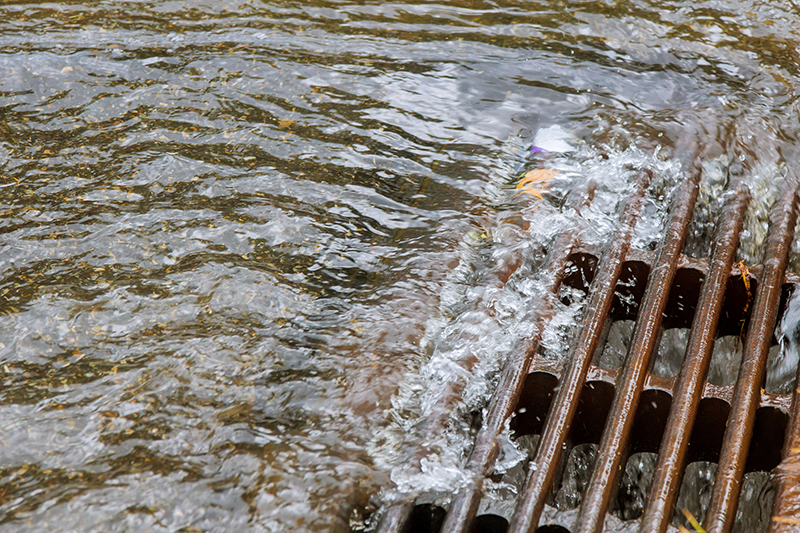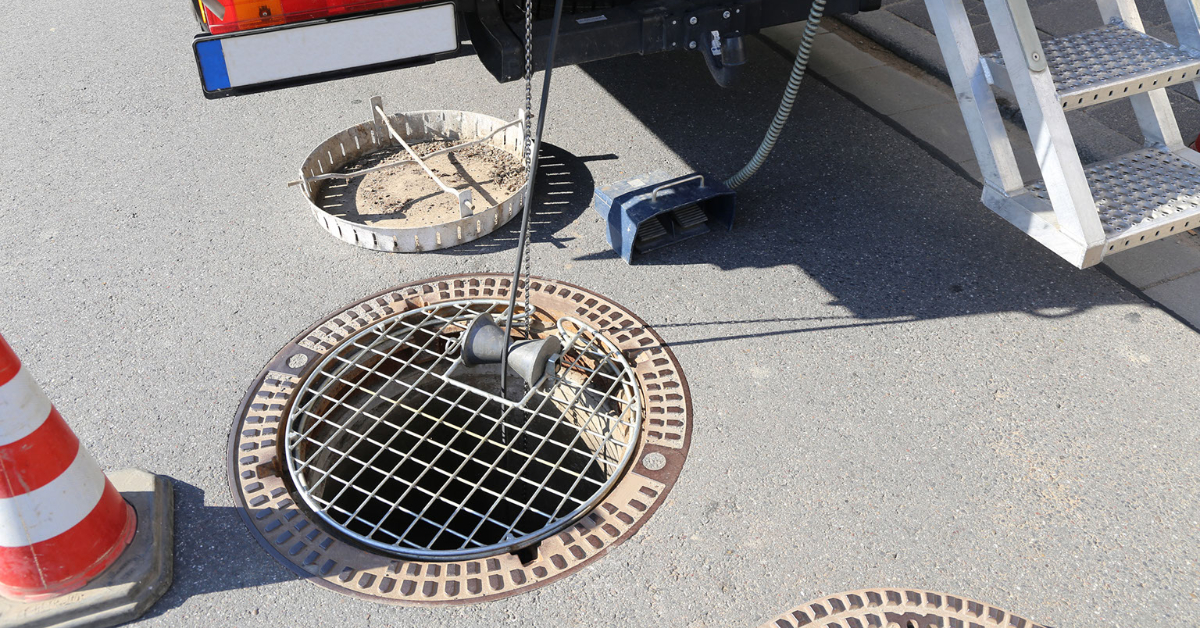
If you manage a municipality or own a commercial or industrial property in New England that has a catch basin located on the property, than you need to be aware of the catch basin cleaning basics. First and foremost, catch basins must be cleaned and inspected by a professional catch basin cleaning company on a regular basis. Otherwise, you are taking the unnecessary risk of having them flood. If a catch basin, or multiple catch basins flood, it can lead to a physical and financial disaster. So how do catch basins work, and why do they flood?
Catch basins are basically drainage units that are designed to catch and re-distribute the deluge of water that occurs when there are rainstorms and the snow melts all at once when the weather warms up. Catch basins are boxes that are buried underground at low points in the topography. They are covered with grates that are located at ground level or street level. The grates allow water to flow into the catch basins. In essence, when there is so much water during a rainstorm or snowmelt runoff that the ground can no longer absorb it, the water begins to flow.
When water starts flowing, it seeks out low points to flow towards. That is where the catch basins come into play. The flowing stormwater and or snowmelt runoff will enter into the catch basins through the grates. At that point, the sediment that is contained within the stormwater and or snowmelt runoff sinks to the bottom of the catch basin. The water enters into a distribution pipe that is located within the catch basin. In essence, the distribution pipe distributes the water to a safe location such as the main sewer line, a retention pond that is located on or near your property, or a local waterway such as a stream, pond, lake, or river.
The bottom line is that catch basins are designed to avoid floods from occurring in the streets and the yards or grounds of properties. However, if catch basins are not cleaned out on a regular basis, than the debris at the bottom of the catch basins will pile up to the point that it blocks the water distribution pipe. If that happens, the excessive amounts of stormwater and snowmelt runoff have nowhere to go but up and out of the catch basins, and that is what causes floods. As you can see, that is why it is so important to have all of the catch basins that you are responsible for cleaned out at least two (2) times per year.
We highly suggest having your catch basins cleaned and inspected in the late fall after the leaves have all fallen, and the early spring.
If you have any questions about our catch basin cleaning services in New England, or would like to schedule service we are happy to help. Jolin Paving & Excavating, Inc. is your New England connection for a vast variety of environmentally related services. Our company has been serving Boston Massachusetts, Southern NH, VT & ME as well as Northern CT & RI since 1952. Please Contact us to learn more today. Environmental related issues occur all of the time, and can strike at any time. That is exactly why you need to have a local and reliable environmental services company at the helm and ready to go whenever you actually need them.
continue reading






